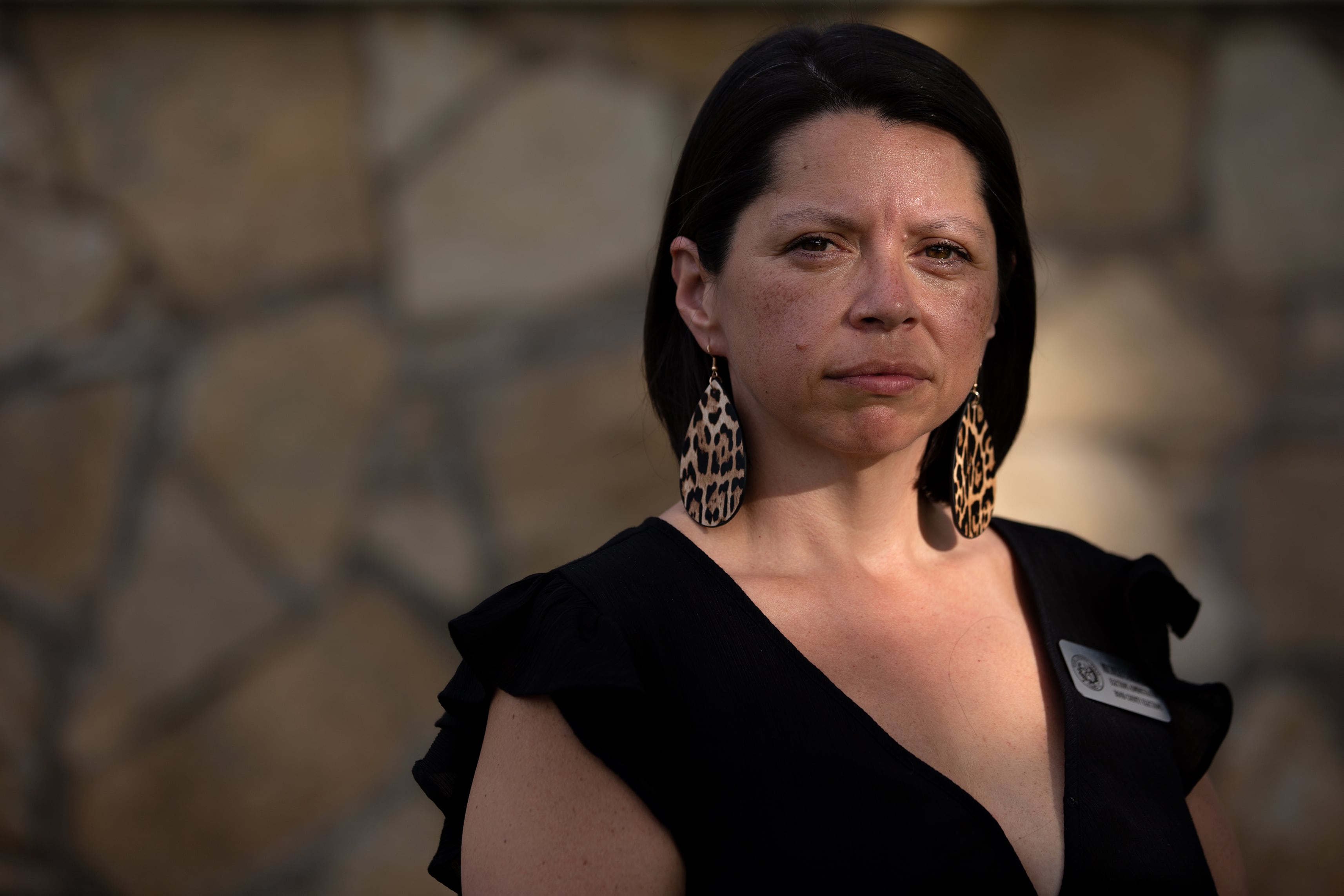Votebeat is a nonprofit news organization reporting on voting access and election administration across the U.S. Sign up for Votebeat Texas’ free newsletter here.
Four years ago, right-wing activists in Hood County caused a stir when they pushed out elections administrator Michele Carew over questions about the way she conducted the 2020 election.
The furor over elections still hasn’t died down. But Carew has found a way back into the election work she cherishes. Last week, a bipartisan commission in Bexar County, one of the largest counties in the state and home to San Antonio, unanimously chose her to manage its elections. Her first day is Saturday.
“I know I made mistakes and I’ll own up to it. I took sides, and maybe I shouldn’t have,” Carew said. “But I had time to reflect on it, learn, grow, and heal from all of it. And it hasn’t been easy to be absent from elections and I want to jump back in.”
Carew, 50, has more than 14 years of experience in election administration. She worked as deputy elections administrator in Parker County in North Texas and later led the elections department in South Texas’ Aransas County. In the fall of 2020 she was hired to lead the department in Hood County, home to Granbury, a community about 35 miles southwest of Fort Worth.
Right away, the complaints from activists about how she was conducting elections began. ProPublica and the Texas Tribune chronicled the months-long back-and-forth between Carew and conservative activists.
Among other things, critics accused her of violating the law by not adhering to a century-old election law about the numbering of ballots.
Texas law says ballots used must be sequentially numbered starting with 1, and distributed to polling places in batches so that “a specific range can be linked to a specific polling place.”
The law also says that ballots at a polling place “must be distributed to voters non-sequentially in order to preserve ballot secrecy.”
How counties comply with these rules depends on the type of voting equipment they use. For instance, some counties, including Hood at the time Carew was election administrator, purchase blank ballot paper that voters insert into a touch-screen voting machine. Once the voter is done making their candidate selections, the device prints the completed ballot with a randomized number to preserve ballot secrecy.
The Texas secretary of state and the Texas attorney general have both clarified that this randomized numbering system complies with the law. But activists continue to raise alarm about the variance from state law to cast doubt on Texas elections.
Carew is aware these battles continue around the state and the country, and that job satisfaction among election administrators is low. But she knows what she’s getting into.
“I’m coming in with a different set of glasses, not some rose colored glasses. I’m coming in knowing that there are people that may have some misconceptions about elections,” Carew told Votebeat. “But I want them to get to know me, and speak to me and let us face the problems together rather than separately.”
Tammy Patrick, chief executive officer for programs at the National Association of Election Officials, said communities of voters benefit when experienced election officials decide to return and face the challenge again.
“That means that the fear and the threats and the attacks that people have made upon them, their families, and their staff is not winning,” Patrick said. “It is not pressuring them to stay away from a job that they love and serving their communities.”
The Bexar County Election Commission — tasked by law with the hiring and firing of the elections administrator — voted to appoint Carew following a search for a successor to Jacque Callanen. The group reviewed more than 100 applications over the course of a nationwide search that began last fall.
Callanen led the department for more than two decades before she announced her retirement last summer. Callanen, too, faced criticism for what Democrats and voting rights groups said was a refusal to expand voting access in the county.
Bexar County GOP Chair Kris Coons, the sole Republican on the five-member commission, said Carew’s vast experience in running elections made her a perfect fit. Coons added that two county judges who worked with Carew in the past also recommended her for the job.
Coons said she will support Carew in her new role, including requests for more election funding if needed, noting that the department that has conducted elections for more than 2 million people with a staff of only about 20 employees.
“I want her to succeed in every way,” Coons said. “We have to work hand in hand.”
Days before the start of her tenure in Bexar, Carew said she plans to prioritize meetings with community leaders to find how to make voting more accessible for youth and voters with disabilities. She said she’d like to hire more staff for the department, among other things.
“I feel that I am coming in with a fresh set of ideas to try to help the county overcome any obstacles that they’ve had,” Carew said. “That is going to be the part that I play.”
Natalia Contreras covers election administration and voting access for Votebeat in partnership with the Texas Tribune. She’s based in Corpus Christi. Contact Natalia at ncontreras@votebeat.org




